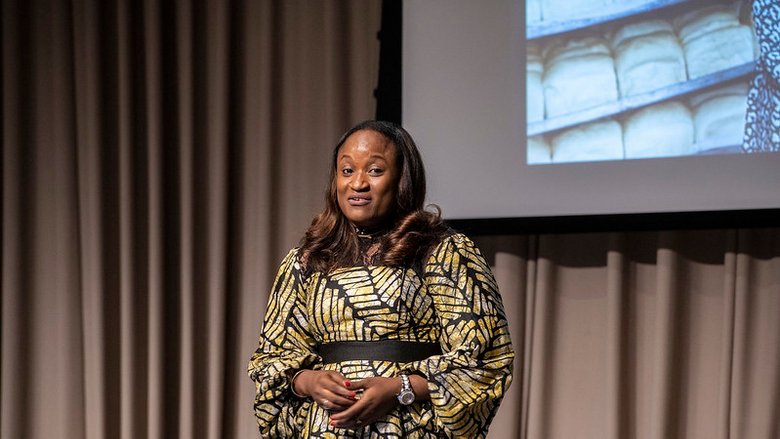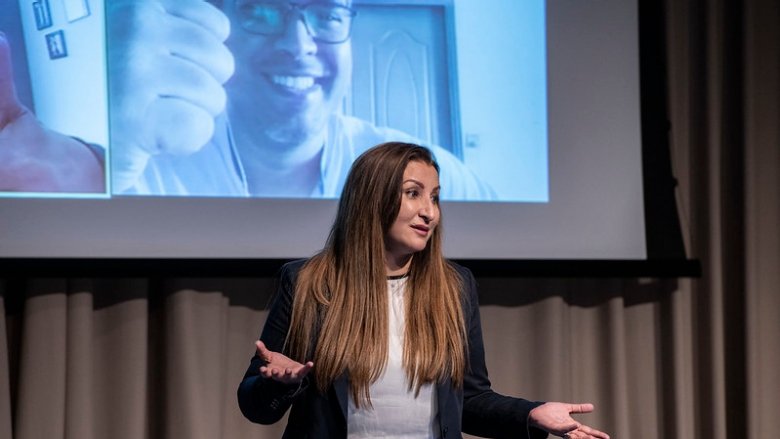A dynamic discussion among private sector and civil society leaders revealed the complementary roles played by each in ensuring that societies and economies benefit from the contributions and leadership of women.
Afsane Jetha, Managing Partner and CEO of Alta Semper Capital, explained that investing in women is good for business: gender balanced teams are more likely to invest in women entrepreneurs and see better returns. Yet, she continued, “The market is underpricing women,” and suggested that intervention from the public sector may even be needed to address “deeply rooted unconscious bias steeped in cultural norms.”
Parwati Surjaudaja, CEO of Bank OCBC NISP, which recently launched a gender bond with We-Fi and IFC support, further leveraged data to highlight that 60 percent of the economy are supported by SMEs, many run by women who need critical support beyond just investment, including through digital and technological solutions.
Memory Kachambwa, Executive Director of The African Women’s Development and Communication Network (FEMNET), expanded on the role of civil society in ensuring that feminist policies are adopted and implemented, reminding the audience that these efforts have spanned decades. The importance of gender data once again featured in how civil society can make the case for investment across areas that are not always typically seen to have gender dimensions, such as illicit financial flows, trade and subsidies.
Mercedes d’Alessandro, Feminist Economist and Writer, former Director of Economy, Equality and Gender of the Ministry of Economy of Argentina, shared insights from feminist movements in Latin America which have been instrumental in pushing forward the agenda on the triple challenges for women in the region: unpaid care work, the disproportionate impacts of the COVID-19 pandemic on women and girls and economic crisis. She challenged governments to ensure that gender equality and the empowerment of women and girls are central to ministries of finance and economy.
All panelists highlighted the necessity of more and better gender data to make the case for prioritizing gender equality, for more effective evidence-informed policies and actions, and for ensuring accountability and learning. The broad array of voices speaking to the same priorities cemented the need for diverse partnerships across sectors to meet development challenges by fostering the potential of women and girls as agents of positive change.
Closing the event, Mamta Murthi, World Bank Vice President for Human Development, noted that policy frameworks and financial flows need to advance women’s empowerment. Civil society, she said, is a key partner to push for investments in and accountability for policies aimed at empowering women and girls and fostering a more equal future. The private sector can demonstrate how gender equality is smart economics.
“Empowering women empowers families, societies, and countries,” said Murthi. “Partnerships across government, civil society, and the private sector are more crucial than ever, with everyone lending their weight to change mindsets and norms.”



